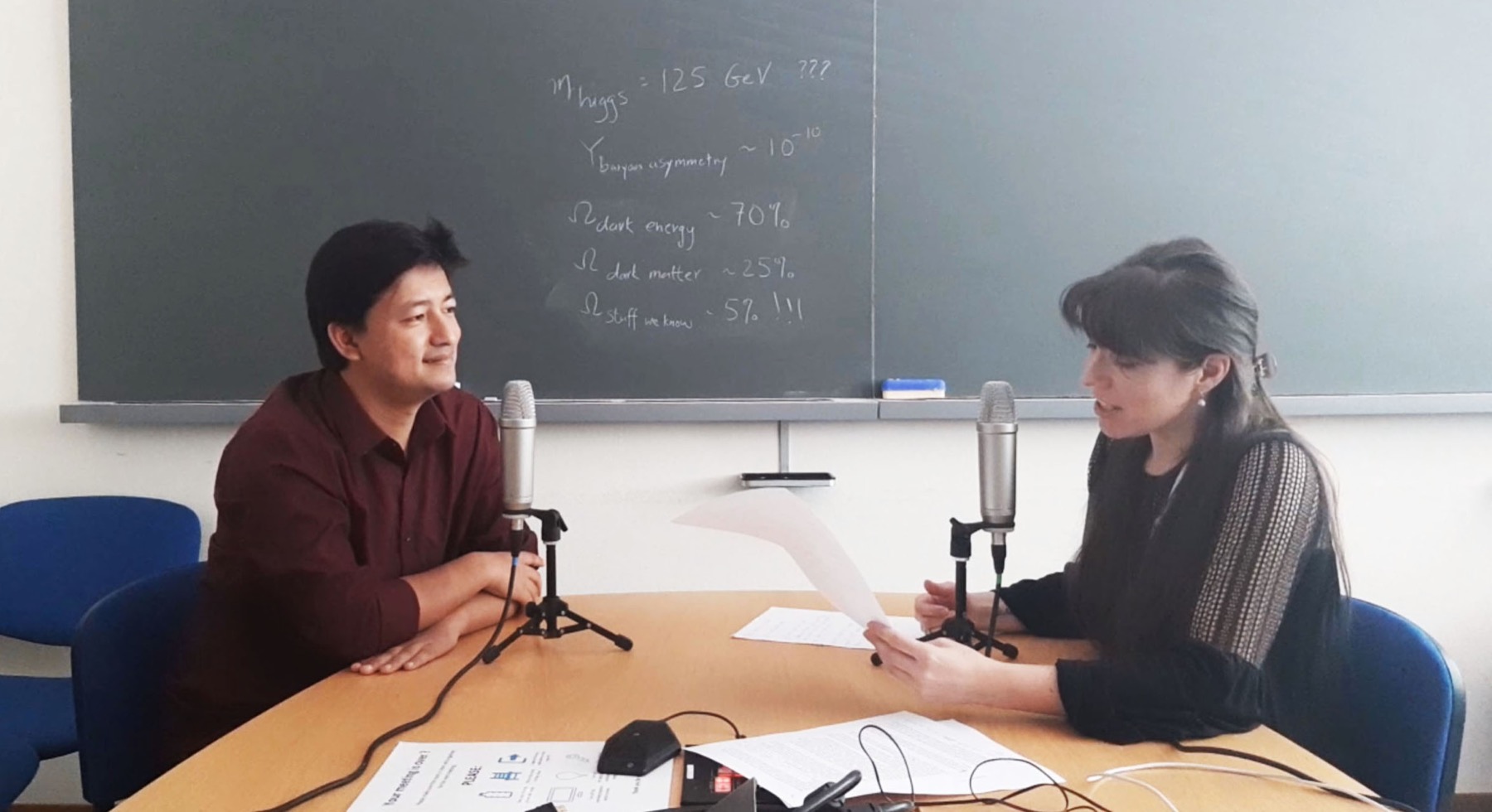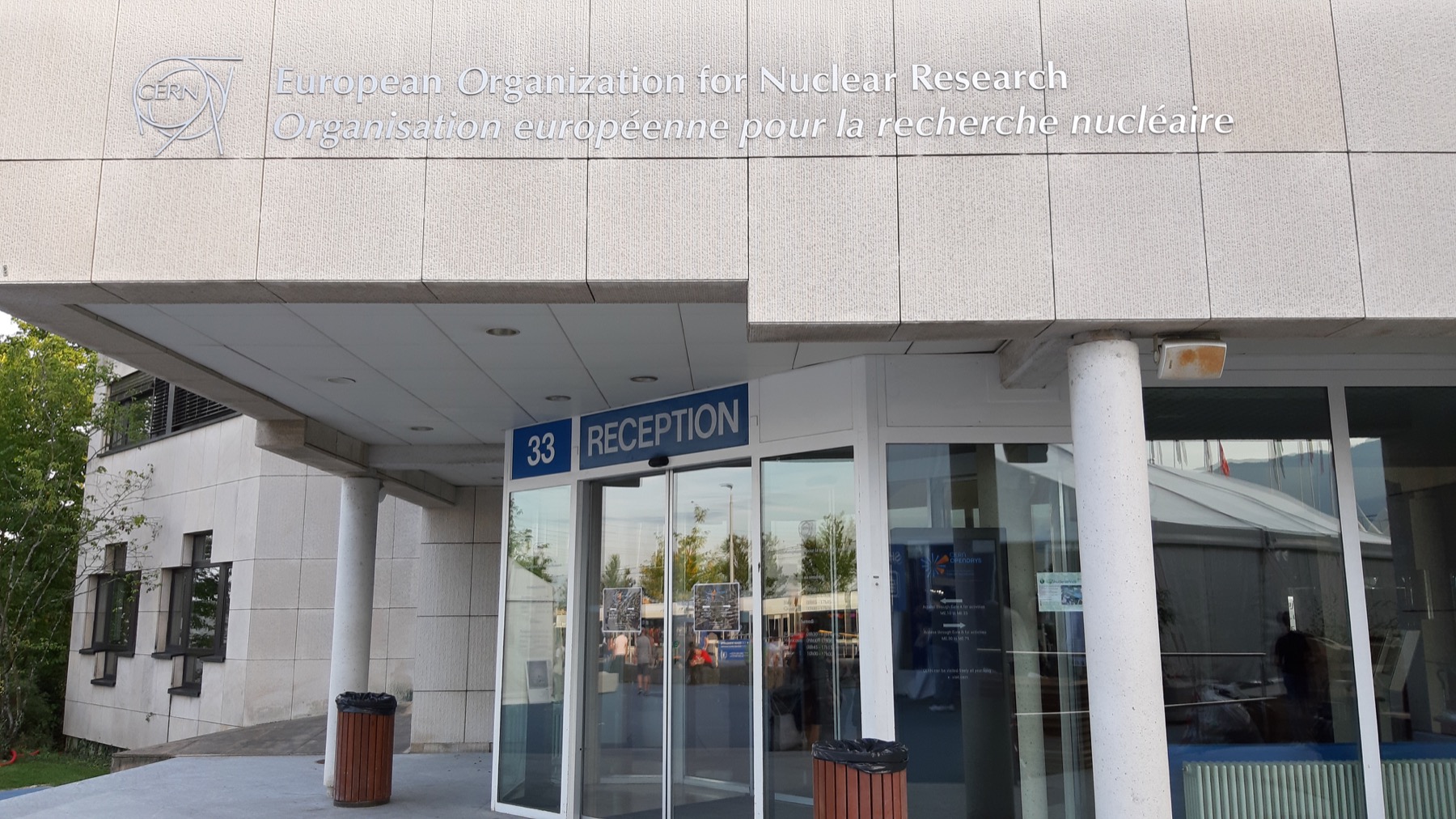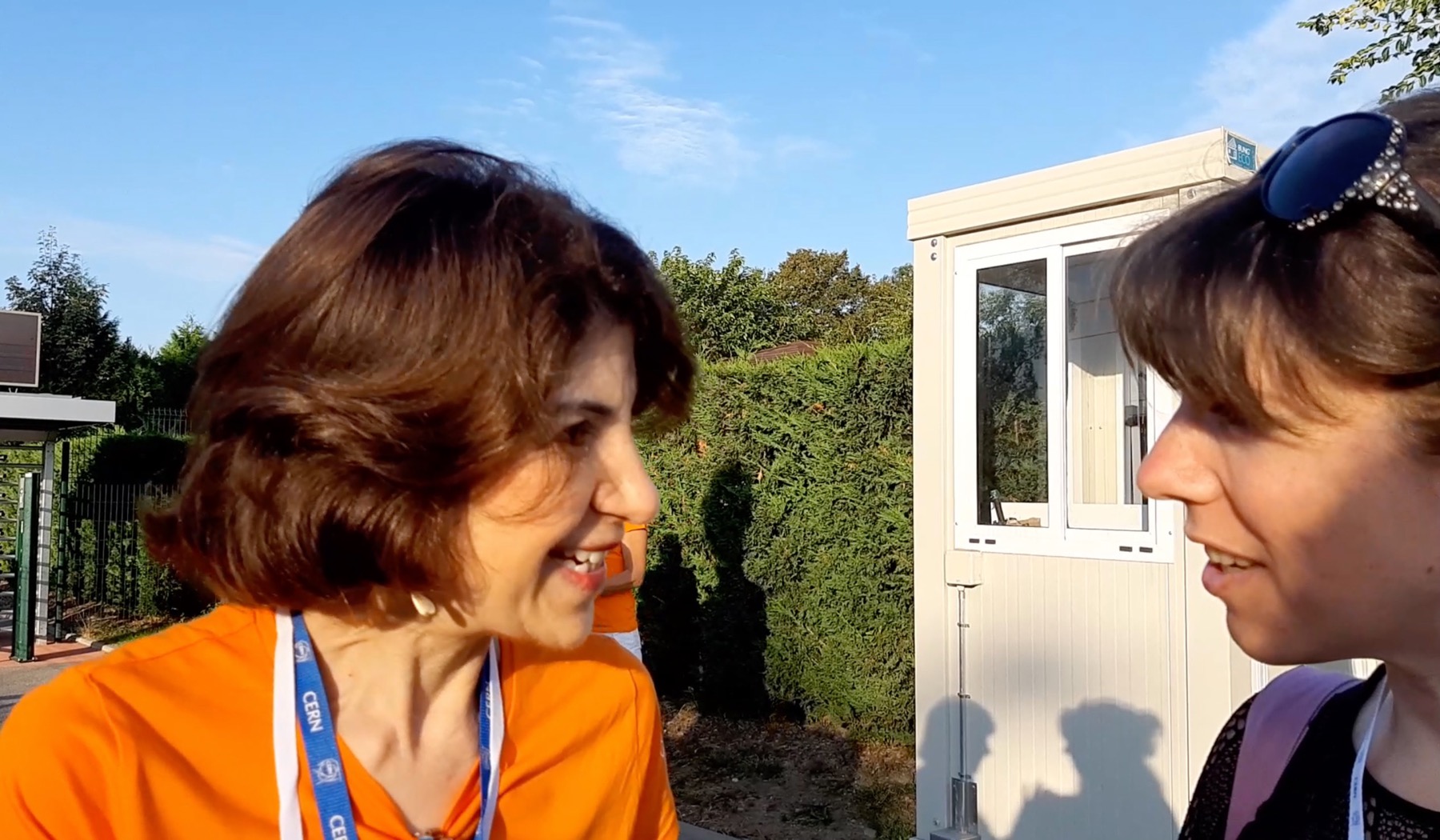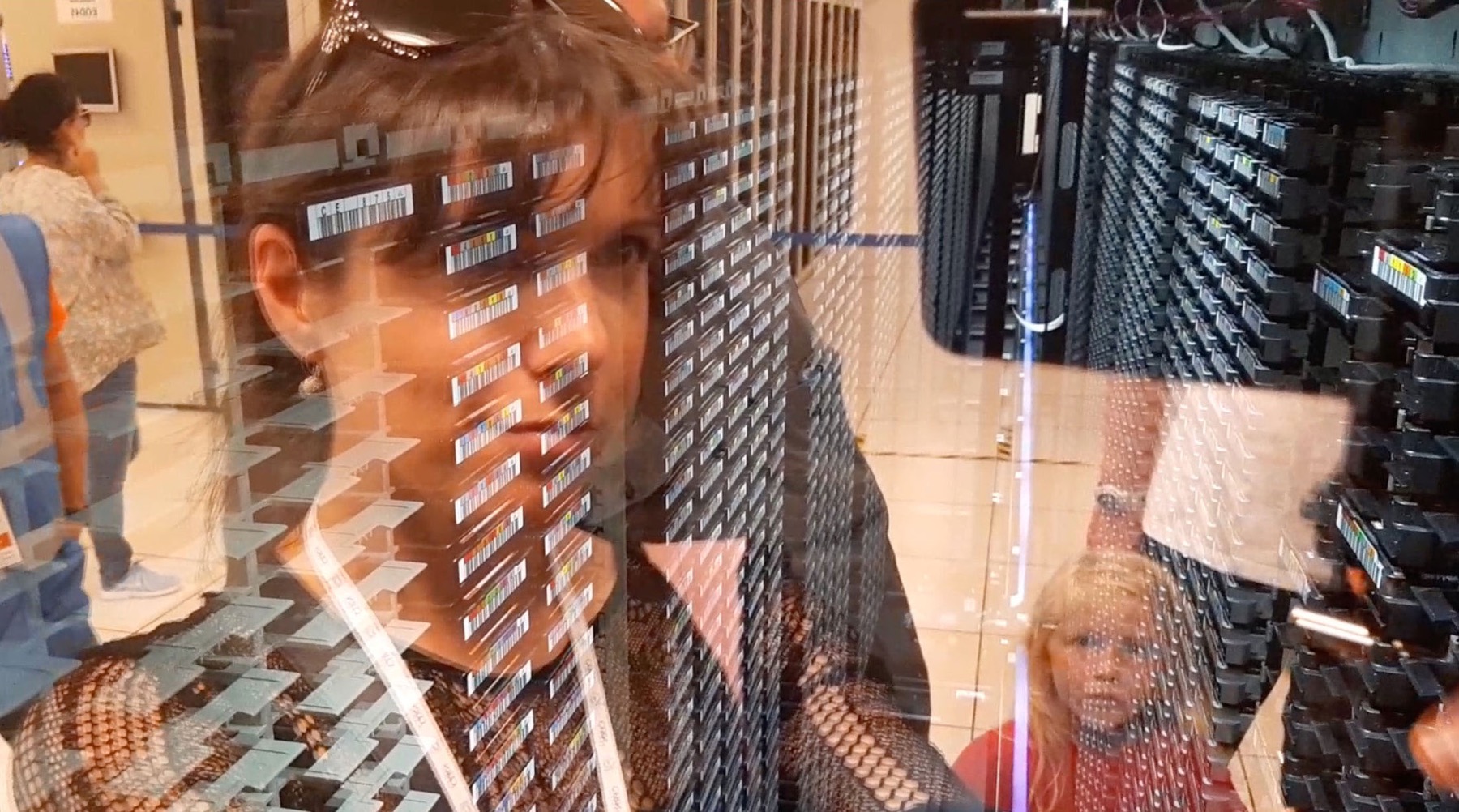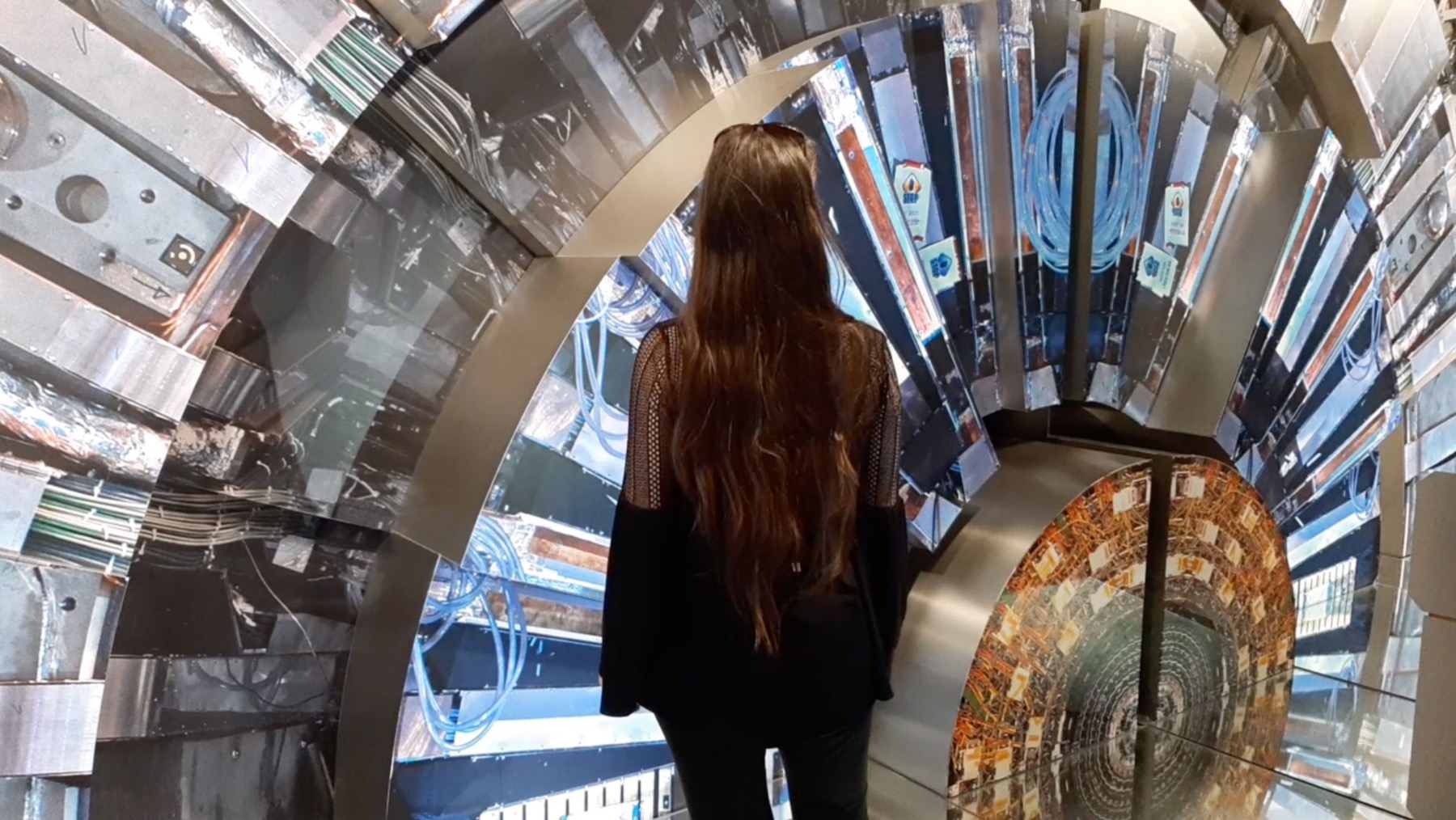The big ideas of physics: Between what and why
with Bibhushan Shakya (CERN)Download this episode in mp3 (8.23 MB).
This work is licensed under a Creative Commons Attribution-NonCommercial-ShareAlike 4.0 International License.
Technoculture is not interested in technology per se, but technology is rather a looking glass through which we observe how humans are impacted by our changing times. One day I asked myself, what is the most famous research center or orgnanization that comes to mind when we think of science? Why don't I look into their research, and see what kind of anwers we can find in their work? Answers that are relevant to humans. Answers about us. I reached out to CERN.
Communication worked increadibly well right from the get go, and I express my gratitude and admiration for the great coordination at the press office of CERN. It wasn't long before I was put in touch with Bibhushan Shakya, a teoretical particle physicists with an interest in collider physics, neutrino physics, cosmology and astroparticle physics.
After an engaging pre-interview via Skype that left me quite excited and almost dizzy with joy, Bibhushan and I agreed on a date to meet at CERN in Geneva. Lucky me, the designated date was concurrent with the CERN Open Days 2019, an extraordinary event the proportions of which were not entirely clear to me until I arrived on location. The CERN Open Days are a regular feature of the period called "long shutdown" during which the accelerators stop for about two years. During this time, the infrastructure undergoes upgrades and renovations. This was Long Shutdown 2: number 1 was in 2013! Over the weekend (14-15 September 2019) CERN was visited by 75k people from all over the world. Thanks to Technoculture, I obtained a press accreditation which made the whole experience a whole lot more exciting as it reduced my waiting time and allowed me to visit many buildings as well as the LHC particle accelerator at 143 meters underground - an unforgettable treat. I hope you enjoy listening to the interview as much as I enjoyed visiting CERN, and that you feel some of the excitement that was going on during those days in Geneva.
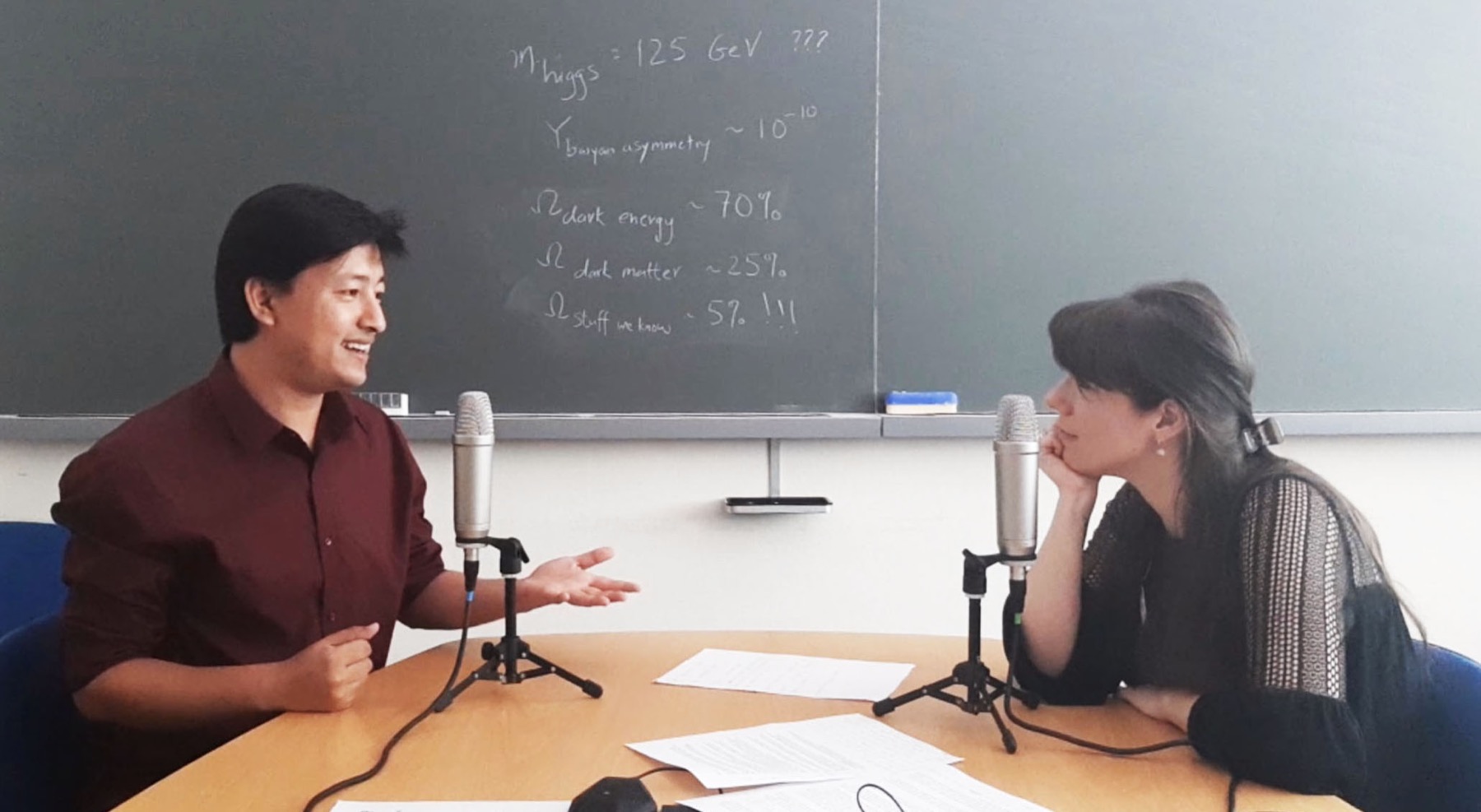
Bibhushan Shakya grew up in Kathmandu, Nepal, before moving to the United States to pursue higher education at Stanford and Cornell. He studied physics, mathematics, and philosophy while gaining research experience in observational cosmology and theoretical astrophysics. He has been with CERN since July 2019.
During the interview, we mostly explore how frontier research in physics is about questions that tie back into a philosophical discussion on us - one of the great mysteries of the universe. What are the current big ideas in physics? What are their implications? How is a typical day of a researcher at CERN organized? How are we working to answer the big questions? Bibhushan is a lovely guest and an outstanding human being, and he beautifully wrapped the interview up by observing that the reason why we ask questions about the universe is not necessarily motivated by a practical end, but it's something that appeals to our human nature, and something we value just like music and philosphy.
Extra content
At the end of our interview, I asked Bibhushan to explain some of the concepts that I found fascinating while preparing for the interview. Physics has such a sexy language! But the concepts are all but easy and accessible. So I challenged Bibhushan to explain these ideas in simple terms, in order to give me and other non-experts a better sense of what these ideas are.
That's why this episode has two audio files: the main interview of the duration of 30 minutes, and extra content of the duration of 14 minutes.
The first concept is supersimmetry (at minute 00:53); the second is the cutest expression I've ever heard in physics: "a baby universe in a black hole" (well, the baby part is cute at least - at minute 6:47); and the third is "space can travel faster than light" and even more precisely: "there is nothing in our equations that prevents space from traveling faster than light" (at minute 10:18).
Concepts two and three were mentioned in a lecture that Bibhushan gave in 2016: https://www.youtube.com/watch?v=hEoyefwMu0k
Music
The music in the short video for this episode was composed by Matteo Di Cosmo, double degree in Electronic and Mechatronic Engineering, and part of the technical staff at CERN. The music is played on "The Tiny Synth," an instrument that Matteo devised himself. Listen to this and other tracks on Matteo's SoundCloud: https://soundcloud.com/matteo-dc/sets/synthworks. The track in the video is called Part II.
And read more about "The Tiny Synth" here: https://thetinysynth.wordpress.com.

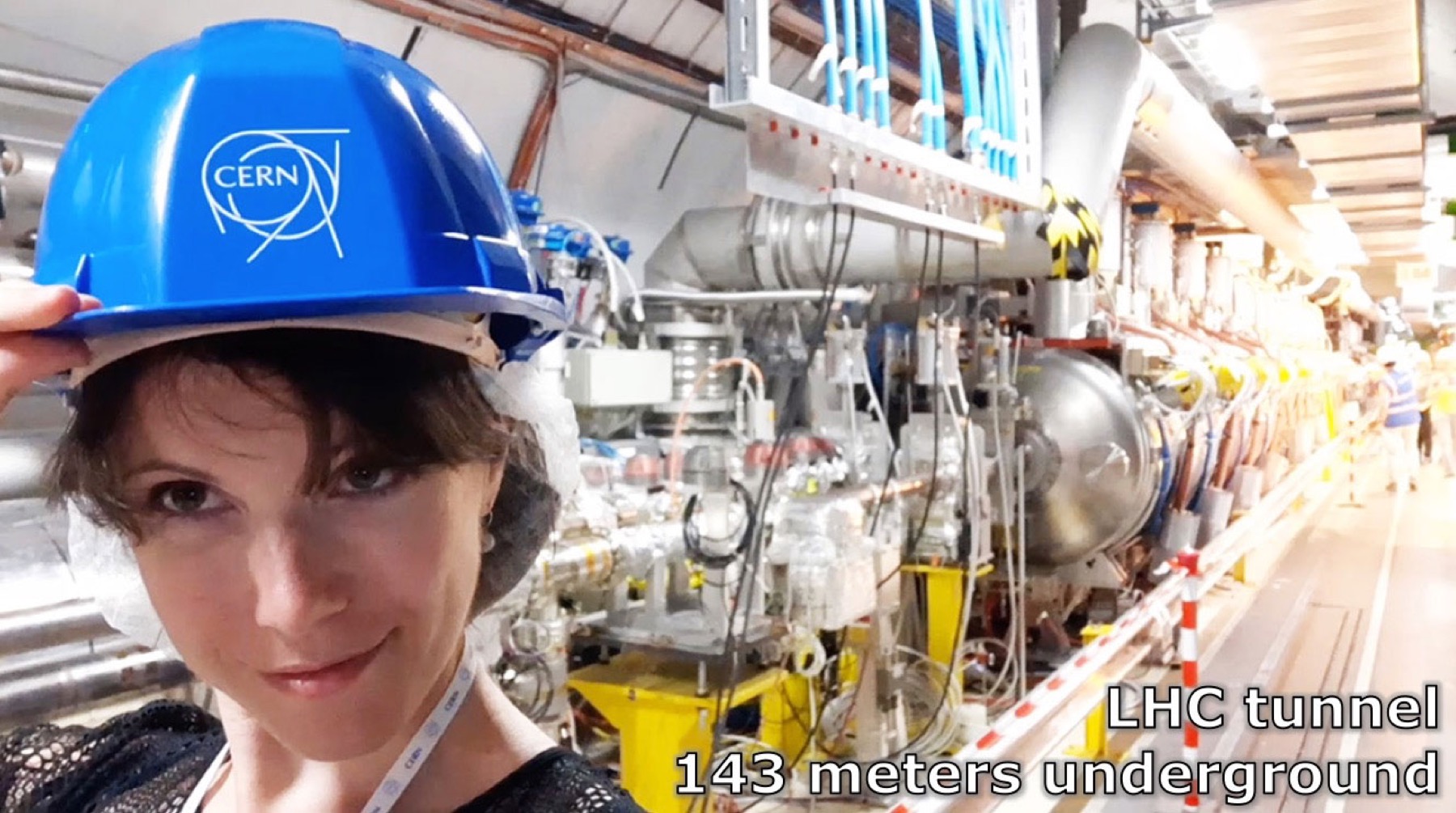
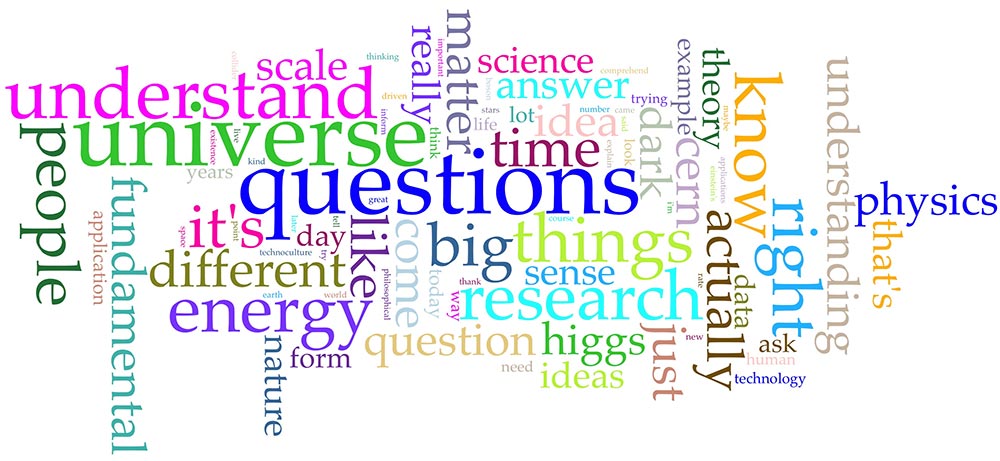
Go to interactive wordcloud (you can choose the number of words and see how many times they occur).
Episode transcript
Download full transcript in PDF (104.04 kB).
Host: Federica Bressan [Federica]
Guest: Bibhushan Shakya [Bibhushan]
[Federica]: Welcome to a new episode of Technoculture. I'm your host, Federica Bressan, and my guest today is Bibhushan Shakya, a research fellow in theoretical particle physics at CERN, the world-renown centre for fundamental research and technological development based in Geneva, Switzerland.
Welcome to Technoculture, Bibhushan, and thanks for having me at CERN today!
[Bibhushan]: Thank you! And welcome to CERN.
[Federica]: Techoculture is not only interested in technology per se: technology is a sort of looking glass through which we observe how humans are impacted by our changing times. And what drew me to CERN is that some big questions about the nature of the universe that you and your colleagues investigate at CERN seem to resonate with fundamental questions about the human condition, like: where do we come from? Will the universe come to an end? And how does this influence how we think about the meaning of life?
Before we dive into how the big questions of physics beautifully inform philosophical conversations about us and life... would you like to give an overview of the kind of research that is done, and currently done at CERN?
[Bibhushan]: Ok, I'll try. So CERN is the European organization of nuclear research. And of course people fixate on the word nuclear. But CERN actually has no military obligations or research in military applications. The mission of CERN is to, like you said, discover the fundamental nature of the universe, and understand what the fundamental building blocks of nature are made up of, and what their properties are. And so that's what drives research at CERN.
So, the flagship research at CERN is what you know as the Large Hadron Collider (LHC). And this is the most powerful collider in the world right now. And recently, in 2012, it discovered the Higgs boson, which was in the news all over. So, people usually associate CERN with research like that. But CERN actually does a lot of other kinds of things that span technology as well as fundamental science.
[Federica]: And what are some of the big open questions in physics today? What is the frontier?
[Bibhushan]: So, we know a lot about our universe today, right. So, we have a lot of different measurements about a lot of different things. And we have-
[Federica]: Wait, wait! Do we? You wrote on the blackboard that the stuff we understand about the universe is 5%!
[Bibhushan]: Exactly. And a lot is just 5%, right. So, that is the incredible thing: that we know so much about the universe. We can pretty much explain everything we see around us and yet our knowledge is so incomplete in the large scheme of things, because if you look at, indeed, the total content of the universe, we understand less than 5% of it. And that is one of the biggest questions, open questions that we at CERN work towards understanding, that this universe that we see seems to be made up of some kind of dark energy - that's 70% of the universe. There's 25% of the universe that is matter in a form that we don't understand. And we call it dark matter, and it's only the remaining 5% that makes up everything we understand.
So, all the stars, the galaxies, the gas, we see, right, the Earth, everything on it, all the planets, all the stars: those only make up less than 5% of the universe. And that is one of the big questions: what is other 95% that we know exists but we have no idea what it is?
[Federica]: How do we know that there is supposed to be more stuff?
[Bibhushan]: So, there are many different ways that we know there is stuff out there that we don't understand. So, dark energy is this energy form that is everywhere in the universe. And it's actually pushing the universe farther apart at a faster and faster rate. So the universe is expanding, and it's expanding at an accelerating rate. And that's because there is this energy form, this dark energy, that's making it do that. Dark matter, we know because it is a form of matter as in, right, we understand it in the same way that we understand what matter is: that it's out there in space, it has some gravitational interactions, so it affects the motion of things around it. So, if we look at stars and galaxies, for example, and look at how they move, then all the other stars and all the other visible things we see around them are not enough to explain their motion. So you need this dark matter that's out there, and it's affecting how stars move and how galaxies evolve.
[Federica]: So what you do at CERN, is to find ways and try to implement ways to get to see, to detect this dark matter in order to justify all of these things?
[Bibhushan]: So, this effort comes in two forms. So, there is the theory side of things, where people come up with ideas of what these things might be and how they can explain the things we see around us. And there is the experimental side, where we actually try to detect these particles at the collider. And that sounds a little weird, right? Because this is just a collider, here on Earth, and we are just colliding particles, and these questions I told you are about things that are out there in the universe, and they've been there since the beginning of time, and they affect everything that we see around them. So, that sounds a little weird, but what we really do when we collide particles at the LHC is that we recreate the conditions that were there in the early universe, because when you collide things at high energy, you produce this area of the universe that is at high temperatures and it mimics the conditions that were there right after the Big Bang. So, anything that happened back then will again happen at these high energies, and we can hopefully see dark matter being produced, and maybe detect them in the collider, and understand how dark matter came to be in the early universe.
[Federica]: You need big theories, like... narratives, and I don't know if these narratives are found in the data, but how does a typical day look like here at CERN? How do you balance theory and practice? Is it a lot of data collection and data analysis, or you also just sit and think and... you know, "receive" these stories, in a way? How does a typical day look like?
[Bibhushan]: So, that's a great question because it really depends on what kind of physicists you talk to, and it really depends on what kind of day you talk to that physicist on. So, first of all, there is a division of labor between physicists. So, some people concern themselves more with the theory. These are the theoretical people. Some people concern themselves more with making sure the experiment runs, and designing it and building it. These are the experimentalists, and you need both of those. And depending on what your expertise is, your work day is very different.
So, I'm a theoretical physicist. So I don't build anything. My job is to calculate and to think. But even for me a normal day just changes every day. So, some days I am talking to people, trying to understand what their research is, what their new ideas are. I read a lot of papers. Some days I just sit alone and try to calculate something. Or try to understand how something that is seen in the data can make sense.
So, I explain this to people like playing a chess game with nature. So, you said physics is driven by big ideas and that's true. But these big ideas are very rare. So, you don't come up with a big idea every single day or every single week. But when you have a big idea, it's enough to drive your research for many many years, even. And so in that sense it's like a chess game, because when you play chess most of the time you're studying what the game setup is, and how your opponent has set up its pieces, and sometimes you come up with a brilliant move but then you spend all this time calculating what the implications of that move are. And chess and physics are similar in that sense, that you come up with a big idea, but most of your time is actually spent on trying to understand how that big idea fits in the bigger scheme of things where there are all these different measurements. So, for example you might come up with a theory about how dark matter was produced in the early universe, but then maybe someone has gone and measured the luminosity of some stars in some galaxy. And that measurement might be enough to disprove your theory. So you need to understand how your theory affects everything that we've measured and that's what actually takes up most of our time.
[Federica]: And what is your personal challenge? What you are working on at the moment? The question then takes your sleep away.
[Bibhushan]: So, it's difficult to pick a challenge and stay with it, because theoretical physics is such a broad discipline, and we're thinking about things that are all interconnected. So, some day I might be thinking more about dark matter. But the question of what dark matter is might feed into some other fundamental question like, what is the energy scale of the Higgs boson, and why is the energy scale at that? And these questions are not separate questions. They are all interconnected. So I might start off thinking about dark matter, but I might end up thinking more about the Higgs boson. And so it varies every day, depending on what interesting papers I see, where my ideas lead me to, or if there's any new measurement, and that looks interesting, new data, that can drive my research ideas.
[Federica]: In such quest, that obviously involves a large number of people, how do you actually plan the research? I start from the assumption that it's not true that the more data you have the easier it is to find a solution. So how do you plan your experiments? How much data you collect? What data? And when is that tipping point when you say, "ok, now we have enough data to stop for a moment, somehow, and dig into it, and start thinking, and see what we can do with it." Or the big idea comes whenever it wants to come?
[Bibhushan]: The big idea does come whenever it wants to come. And most of the time you're just waiting for that big idea, and setting the stage for when that big idea arrives. So, just trying to catalogue, if you will, all of these different measurements, and how they can be expressed in a coherent form, so that when you have some big idea, you can match them against data and see what comes out of it.
[Federica]: Let me ask you something from the other side of all of these research questions. Say that we've found the answers to all of these questions. Then what? You know, it doesn't mean to diminish the research in any sort of way, but can you imagine us on the other side of these questions? Then, what happens? Do we have an application in mind for some of the principles involved? Or we don't really know, research is pretty much curiosity driven at the moment?
[Bibhushan]: So, this is a very complicated question that we get a lot. And the answer to that really is, we have no idea. And we have no idea not because there aren't any applications. We just have no idea because that question is really really premature at this point, because these are big questions that span many many lifetimes. So it's not something that even a human could comprehend, that you'll see the implications out of all of these ideas within his lifetime. And there are many examples that I could give you about these things.
So, for example: electricity. So, we see it everywhere around us, and we understand its value, and how it affects our lives. But when electricity was first discovered or understood it was in a very fundamental form. So this is back in ancient Greece, when people were rubbing together fur with some amber, and they saw that these things attracted each other. And so this was the beginning of their understanding of electricity. And later on magnetism. But if you would ask them at that point what the point of that research is, or what its application is, they would have no idea. And they would have no idea not because that thing doesn't have any applications, it's just because their technology or their understanding of the world was at such a rudimentary stage at that point that they couldn't comprehend using what they saw to one day power machines or computers or vehicles.
[Federica]: Yeah, this was a hard question because it was direct and, you know, by no means I meant to imply that if the practical application, the utility of this research can't be proven, that it shouldn't be funded. I'm not from that school at all. I'm actually really curious to know the answer! What if... we have the answer to these questions! Then what, you know?
[Bibhushan]: Yeah. And these recent research ideas are never driven by some desire to find an application. These are always driven by curiosity, in an attempt to understand better what the universe is and how things work. And many many hundreds of years later, years later, someone might find an application. And that's great, but that's not what drives these research ideas. I could give you some more examples, if you'd like.
So, my favorite example of these things is actually Einstein's theory of general relativity. And this is something we all are in awe, right, because Einstein was such a genius, and he came up with this deep deep understanding of space and time and how they morph into each other, and an understanding of how gravity is actually an effect of space and time. When he was thinking about these ideas, he wasn't trying to come up with some application. He was just trying to formulate a mathematically consistent framework of space and time, and when it was formulated, and people understood it, it wasn't like people immediately came up with new applications. And people in fact even said, this is really nice for understanding things, but the way we understand gravity, Newton's laws - you never need to go beyond that for practical life. And that was true at that time, but much much later, when technology became more advanced, understanding Einstein's theory and the improvement it offered over Newton's Laws was actually very crucial, and it was crucial for things like GPS. And that's because - so, one of the things that Einstein's theory says, is that time can actually pass at a different rate in different places, especially in places that have different gravitational fields. So, the rate of time passage here on Earth is actually not the same as the rate of time passage up in space. So when we set up our satellites, those actually experience time flow at a different rate. And if we didn't know Einstein's theory of relativity, and if we didn't correct for that time difference, then all of our GPS functions would be completely thrown off in a matter of seconds. And so, applications did emerge, but they emerged much much much later than the theory itself.
[Federica]: Well, by application I don't necessarily mean a tool or a technology, like the GPS. If we could know something that we don't know today, for example our date of death... what would that change? That's what I had in mind. So, to have new knowledge about us would replace us in the universe, would make a difference in our awareness, of where we stand, about life, about our own nature in the universe.
[Bibhushan]: Of course, and most of the great advances in science come with this conundrum, these philosophical questions. It's not just scientific questions, but philosophical questions, right? And I mentioned Einstein's theory of relativity: there is also quantum mechanics, which was a huge improvement in our understanding of the universe, but it also led to very deep existential questions, because what it basically said is that the fundamental laws of nature are not definite, they are probabilistic, which means that even if I told you everything about a system, and I told you I was going to do this experiment, even if I knew all the physics, I could not predict what the outcome of that experiment would be. So, if I were doing an experiment, there is a 50% chance that this object that emerges would go right, 50% chance that it would go left. And that is not a shortcoming of our knowledge of the system. That is just how nature works. It is probabilistic, it is not deterministic. And of course people took it to their daily lives too, right, that they are actually not fundamentally destined to do something. Everything is probabilities, everything is unsure. There is some room maybe for free will, maybe not, right? So, these scientific advancements actually inform our understanding of the nature of the world we live in, and of our strategy for dealing with this world, if you will.
[Federica]: Well, we've been asking this philosophical questions for millennia. So, it seems like science is now joining the conversation.
[Bibhushan]: Right. So, I would in fact say that science has always been part of the conversation, because back in the days there was no distinction, really, between philosophy and physics. This was all a quest to understand truth, and truth could come in many different forms, and it could be truth that is within you - which is where philosophy and religion were more geared towards - or it could be the truth about the universe that you see around you. And these are not two different questions, right? What is within you and what is outside you are two necessary components of the big question. And you really need to understand both of them equally to make an informed understanding, an informed decision about what to do.
[Federica]: Right. May I ask you to articulate even further this concept of why we value fundamental research, fundamental science so much? I think it's something that we all feel, but that oftentimes is not highlighted in the big narratives that we circulate today about science, because it's all application driven, and of course taxpayers money must be well spent, but that normally is synonym of short-term return, practical return. And yet, we all feel that it's important to investigate the universe. So, can you elaborate a bit more on why we value fundamental research so much?
[Bibhushan]: That is difficult to put into words, except we all understand that it somehow means something to us to understand these questions. And it captures the essence of being human to be able to ask these questions, and understand what they are, right? And so, if you asked, are these kinds of questions really valuable to us? Do they offer something to humanity as a whole? It's difficult to answer those questions, but I'll tell you something that is perhaps somewhat puzzling to me, and then maybe you can tell me why that makes sense, right.
So, if you asked a question, for example, of who was the most important person on earth in the last 100 years, and you would wonder about that, and you would go ask people about that, and Time magazine did that - they did this poll where they asked a lot of people, who do you think is the most important person to live on Earth in the last 100 years? And the answer was not some great political figure who made great strides in a country or even internationally. The answer was Albert Einstein. It wasn't Mahatma Gandhi or Roosevelt. It was Albert Einstein and that is very puzzling to me. But it also makes sense to me, that people would identify with Einstein's efforts to understand the nature of existence. And even though he didn't come up with anything that was practically useful to humanity, his ideas meant so much that he was perhaps the most important person to live on Earth in the last century. And this is not just one example right. If you ask the same question about the last 300 years of human existence, or the last 500 years, the answer would perhaps be Galileo or Isaac Newton. And these people are valued not because something they did was very practical, but they provided this very profound understanding of something very fundamental about our universe. So why- why- why do we care about these things so much? I would not be able to answer, except we do because somehow... somehow it seems to capture the essence of what it means to be human. And somehow, it gives us something that doesn't go away: this stands over the course of time. Once we have these things, we have them forever. And that in some sense seems to matter to us.
[Federica]: Speaking of questions that matter to us: I have a sense that the questions "what is consciousness?" or "why are we alive?" are two very different questions. And yet they go together. So I'm confused now as to which of these questions science can inform. Now science is looking into what consciousness is, for example. I also had a neuroscientist, Steven Laureys, on my podcast, on episode number 15, talking about how science can start looking into what consciousness is and how it works through recent technology, right, like brain scans, MRI machines... but science will never tell us why I should wake up in the morning, why I should want to live, and probably even not how I should live - and all of these questions. And yet both are fundamental questions for us human beings: who we are, and what we do, why do we do what we do. So, which type of question does science inform?
[Bibhushan]: Yeah. So, you said some very big words there. And the big words were "what" and "why." Right? There is a fundamental difference between the kind of answers those two questions are seeking. "What" is an effort to understand things as they are, and "why" is an effort to understand how it came about. Which is perhaps at a more deeper level. And it's really interesting that you bring those two words up because our understanding of fundamental physics right now is actually hinging on the boundary between what and why.
So, I'll tell you a little bit more about these things. So, two of the biggest mysteries that we have in our understanding of the universe right now are the nature of dark energy, which I told you a little bit about, but also the energy scale of the Higgs. So, the Higgs boson is at an energy scale that makes absolutely no sense. And for many many decades we've been trying to understand why that energy scale is the way it is. And there are many many different theories proposed for why that was. And you might have heard about them. They go by the name of supersymmetry or the existence of extra dimensions. And so we designed experiments to look for these theories and the results came up negative, as in we now think that those ideas perhaps don't explain why the energy scale of the Higgs is where it is. And so, then the question turned from "what is the energy scale of the Higgs?," which was driving research over the last 50 years, to "why is the energy scale of the Higgs at that number?"
And we don't know. But the question has now shifted perhaps from "what it is" to "why it is." And the answer might actually be very deeply disturbing to some people, or deeply enlightening to some people, because some people now suspect that the answer might be driven by the existence of humans, of consciousness, in the sense that it turns out perhaps that the universe could have been a very different universe where the energy scale of the Higgs was very different, or where the energy of dark energy was very different. But those universes perhaps do not evolve in a way where conscious life could form, where humans could evolve, to a scale where they can ask these questions. So, the reason why these energy scales are at these really unnatural numbers they are, might be because that is what is needed for intelligent life to form and ask those questions, in some sense, right? So, our understanding of the universe right now is at a point where we could perhaps take seriously the fact that the universe began in all possible configurations of the Higgs energy scale and it evolved in all of those universes separately. And so there are now all these empty universes where the Higgs is at some different energy scale and there is no life there to ask the question of why is the Higgs energy at that scale. But in this one universe, where this Higgs energy was at a completely ballistic number, no life formed. And now we're here asking why is that energy scale at this weird number.
[Federica]: Did I just hear you say that until we look into the box the cat could be alive or dead, so now that we tried to measure this attribute of the Higgs boson we have determined it, it could have been anything until we looked? Is this like talking about multiple universes existing in parallel, or about one universe having infinite possibilities, but as it evolves, as it becomes, as it determines itself, then it only becomes one thing, and all the other possibilities are lost?
[Bibhushan]: It could go either way. So there are theories of the universe where the universe begins and then branches out into all of these different possibilities, and they all evolve separately in their own reality.
[Federica]: You have mentioned that in the ancient world philosophy and physics were not separate. And today they are, and precisely today we are sitting here talking about how physics can tie back into existential philosophical questions. Can you tell us a bit more about other questions that you think science and frontier research in physics can inform in the philosophical domain? I don't know, for example why are we there, or why do we die? What else can we learn?
[Bibhushan]: I don't know if physics will provide the answers to these questions, but it's certainly the case that physics will provide you with the tools or the understanding you might need to answer these questions. Because a prerequisite to answer these questions is to understand what the nature of existence is, right? Because you can only answer these questions after you've found out what kind of universe you live in, what is the fate of the universe going to be. Are our actions constrained in some form by the fundamental laws of nature?
[Federica]: While doing this type of research, I assume it just shows you your place constantly: we are just this, well, extraordinary but tiny creature, trying to figure out the universe. It's not human-centric. Do you get all the time this feeling that it's... a humbling feeling?
[Bibhushan]: Yes, indeed. And it's a humbling feeling but it's a wonderful feeling, right? That, uh, we are such a small part of existence, and yet we can comprehend so much of it. And whatever we comprehend is in a sense very beautiful and in a sense, uh, in a form that we can understand and comprehend and enjoy.
[Federica]: From this perspective it seems like all of these questions about us, e.g. why are we alive, why do we die, what are we made of, we we we we... you know, all of this becomes less important. There is so much out there to discover. What is the universe made of? That's a much more interesting question. So, even if you find out that we're not relevant in the universe, it doesn't matter, because it's still beautiful.
[Bibhushan]: Of course, yeah.
[Federica]: And on this note, I would like to thank you for your time, and thank you very much for being on Technoculture.
[Bibhushan]: Thank you. It was my pleasure.
Thank you for listening to Technoculture! Check out more episodes at technoculture-podcast.com or visit our Facebook page at technoculturepodcast, and our Twitter account, hashtag technoculturepodcast.
Page created: October 2019
Last update: October 2020

